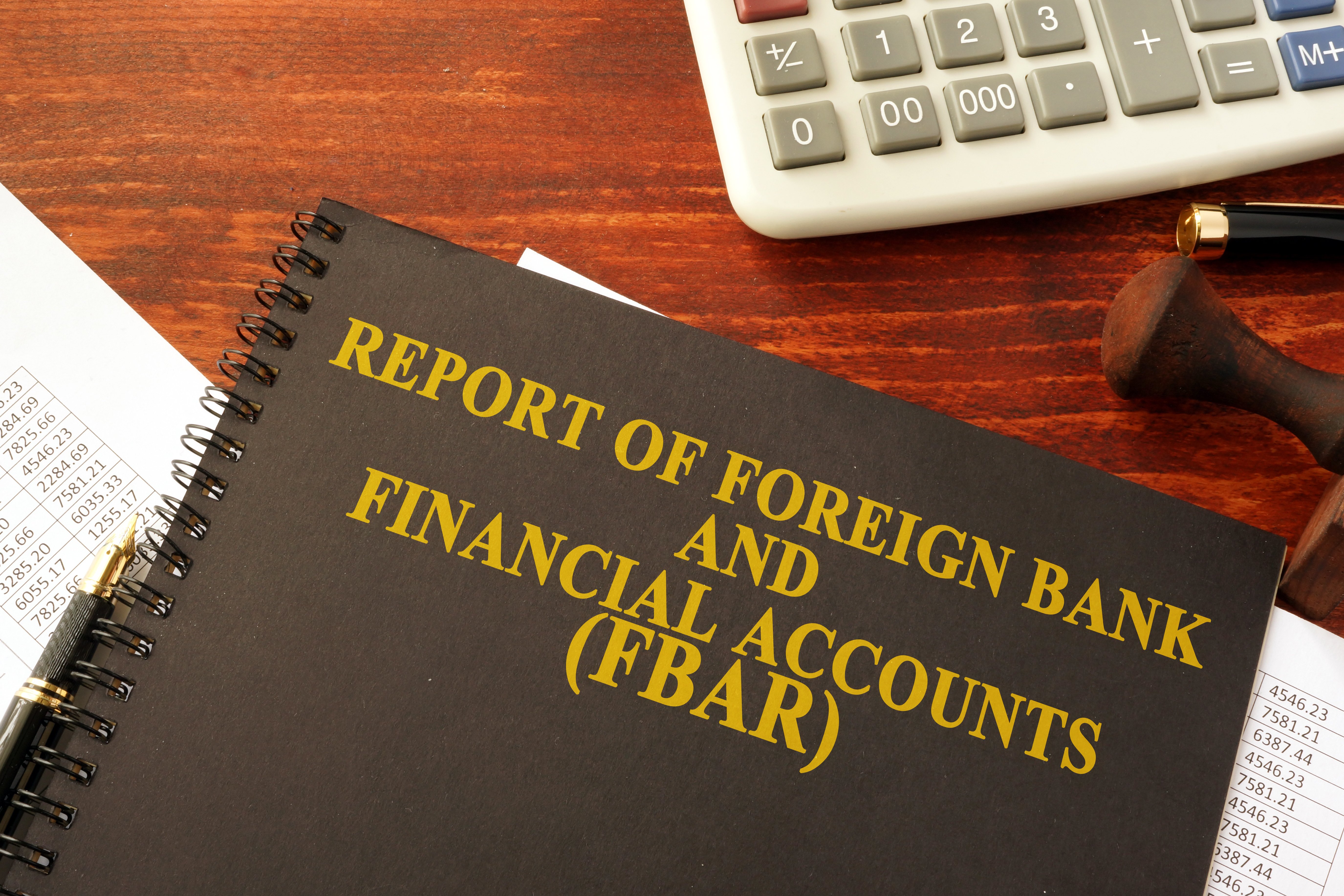Contributed by: PhillipB, FreeTaxUSA Agent, Tax Pro

If you have foreign financial accounts and you are a “United States person”, you have likely heard of the FBAR or FinCen. However, you may not be familiar with what these acronyms stand for and if they relate to your tax return.
What is FinCen?
FinCen stands for the US Department of Treasury’s Financial Crimes Enforcement Network. Their functions include investigating money laundering and fraud, stopping money from getting to terrorist groups, and promoting transparency and accountability in financial systems.
What is the FBAR?
One of the ways the Department of Treasury accomplishes the task of combatting money laundering, fraud, and terrorist financing is the requirement for United States persons to file the Foreign Bank Account Report (FBAR). The FBAR is reported on FinCen Form 114.
Do I need to file the FBAR?
You need to file the FBAR if you meet all the following criteria:
- You’re a U.S. person, which includes:
- U.S. citizens (including minor children)
- U.S. residents
- U.S. business entities such as corporations, partnerships, limited liability companies (LLCs), trusts or estates
- You have financial interest in or signature or other authority over at least one financial account (including bank accounts, brokerage accounts, and mutual funds) located outside the United States.
- The aggregate (or total) value of all foreign accounts exceeded $10,000 at any time during the calendar year.
Several types of foreign accounts are excluded from FBAR filing, and certain individuals circumstances may also exempt a person from the filing requirement.
The excluded accounts include the following:
- Correspondent / Nostro accounts
- Accounts owned by a governmental entity
- Accounts owned by an international financial institution
- Accounts in a U.S. military banking facility
- Accounts that are included in your individual retirement accounts or retirement plans
- Accounts that are part of a trust for which you are a beneficiary if another U.S. person files an FBAR for the trust reporting those accounts.
The scenarios that would exclude an individual from the FBAR requirement include the following:
- All foreign financial accounts are reported on a consolidated FBAR, or
- All foreign financial accounts are jointly owned, and
- Your spouse reported all jointly owned accounts on a timely filed FBAR, and
- You and your spouse have completed and signed FinCen Form 114 authorizing your spouse to file the FBAR on your behalf.
When is the FBAR due and how do I file it?
The FBAR is due on April 15th following the calendar year that is being reported (the same due date as your income tax return). An automatic extension to October 15th is granted (without needing to file anything) if you don’t file the FBAR on time. The government can extend the deadline further if there were natural disasters in your area that made it difficult to get the FBAR completed on time.
The FBAR is a separate document from your individual income tax return and is not filed with your tax return. To file an FBAR, go to the Treasury Department website.
What foreign bank information is required on my tax return?
If you have an FBAR filing requirement, there are a few things that would also need to be reported on your individual income tax return. These items include the following:
- You must report the income from your foreign financial accounts. For example, if the income is interest income, you would report the income as if it was reported on a U.S. Form 1099-INT. If the foreign financial account income is coming from mutual funds, you may need to file your return using another method so you can include Form 8621, which is not supported by FreeTaxUSA.
- You need to report that there’s a FATCA (Foreign Account Tax Compliance Act) requirement as you report the income from the foreign accounts. For example, to enter interest income from a foreign bank using FreeTaxUSA software, follow these steps:
- Enter the interest income by following this menu path: Income > Common Income >Investments and Savings. Click +Add an Investment and select Interest (1099-INT). Continue to the screen labeled Enter the interest info from your 1099-INT.
- Enter your interest income and foreign taxes in U.S. dollar denominations in the 1099-INT boxes provided.
- Scroll to the bottom and checkYes to Do you have a FATCA requirement? and click Save and Continue.
- You also need to report the country where the account is held by following these steps:
- Follow this menu path: Misc > Income >Foreign Accounts and Trusts.
- AnswerYes to the question on the screen.
- AnswerYes to the question about the FBAR or FinCEN Form 114 and add all the countries in which you have foreign accounts. Click Save and Continue. This information will then be included on your Schedule B.